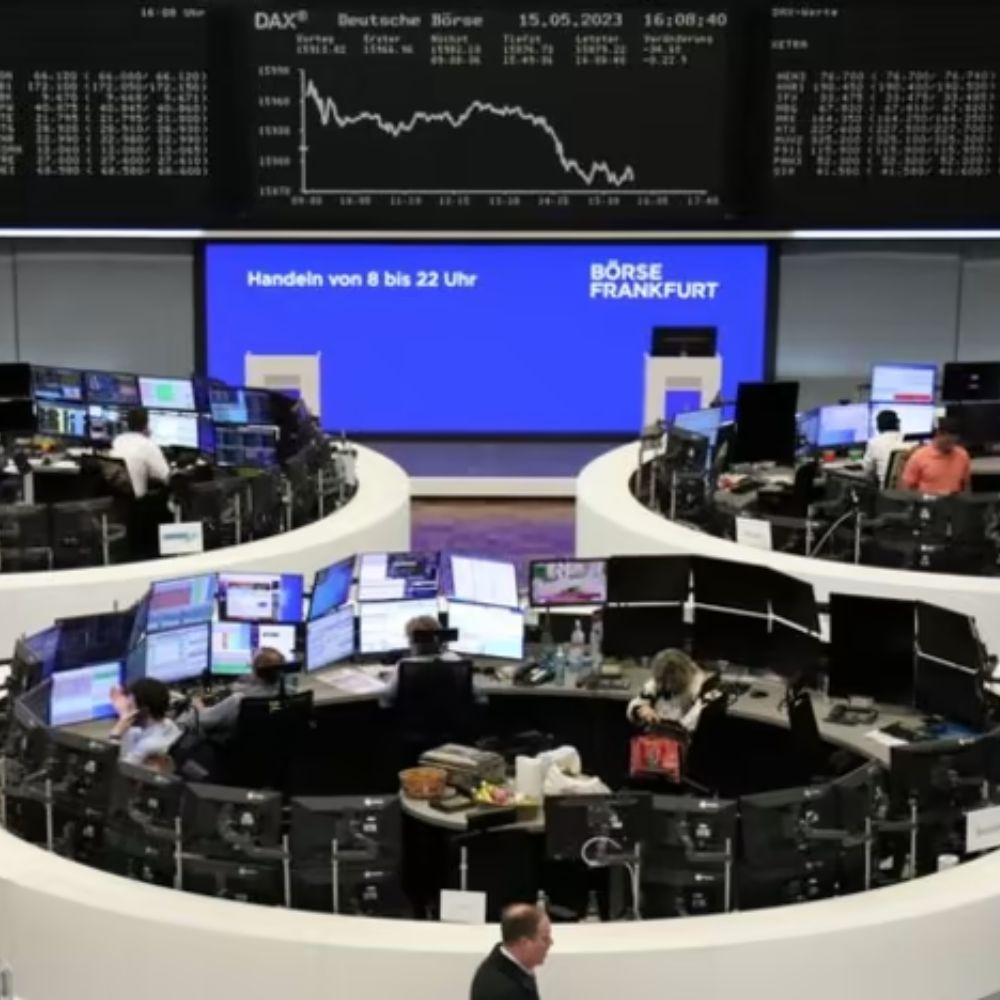Rise Of Chinese Stocks: Assessing The Impact Of US Negotiations And Key Economic Data

Table of Contents
The Influence of US-China Negotiations on Chinese Stock Performance
The ongoing relationship between the US and China has profoundly impacted the performance of Chinese stocks. The so-called "trade war," marked by escalating tariffs and trade restrictions, created periods of significant market uncertainty. However, periods of diplomatic breakthroughs and easing tensions have often led to surges in investor confidence and subsequent stock market rallies.
-
Positive Impacts: Announcements of trade deals or de-escalation of tensions have historically led to immediate positive reactions in the Chinese stock market, particularly in sectors directly affected by tariffs. Increased investor confidence and renewed foreign investment often follow such developments.
-
Negative Impacts: Conversely, periods of heightened trade friction, new tariff announcements, or escalations in geopolitical tensions can trigger sharp declines in Chinese stock prices. Sectors heavily reliant on exports to the US, such as technology and manufacturing, are particularly vulnerable during these periods.
-
Market Volatility: The inherent uncertainty surrounding US-China relations contributes to significant volatility in the Chinese stock market. Investors need to understand that this volatility is a key feature of the market and requires a robust risk management strategy. Successful navigation requires careful monitoring of diplomatic developments and their potential impact on specific sectors.
Deciphering Key Economic Data for Chinese Stock Market Analysis
Understanding the health of the Chinese economy is crucial for analyzing Chinese stock market trends. Several key macroeconomic indicators provide valuable insights into the country's economic performance and future prospects. These indicators directly influence investor sentiment and ultimately, stock valuations.
-
GDP Growth: China's Gross Domestic Product (GDP) growth rate is a primary indicator of overall economic health. Stronger-than-expected growth often leads to positive market sentiment, while slower growth can trigger concerns about economic slowdown and negatively impact stock prices.
-
Inflation: Inflation rates provide insights into consumer spending and pricing pressures. High inflation can erode purchasing power and negatively impact corporate profitability, potentially affecting stock valuations. Conversely, moderate inflation is often seen as healthy for economic growth.
-
Other Key Indicators: Other crucial indicators include consumer spending, unemployment rates, industrial production, foreign investment, and retail sales data. Regularly reviewing these data releases provides a comprehensive understanding of the underlying economic forces shaping the Chinese stock market. Reliable sources for this data include the National Bureau of Statistics of China and international financial news organizations.
Sector-Specific Analysis: Identifying Opportunities and Risks in the Chinese Stock Market
The Chinese stock market is incredibly diverse, encompassing a wide range of sectors. Each sector presents unique investment opportunities and risks, influenced by both US-China relations and broader macroeconomic factors.
-
Technology Stocks: This sector is a significant driver of growth but also faces considerable regulatory scrutiny and geopolitical risks linked to US-China tech rivalry.
-
Consumer Goods: This sector benefits from China's growing middle class and rising consumer spending, but it can be sensitive to economic slowdowns and shifts in consumer preferences.
-
Real Estate: This sector is a significant part of the Chinese economy but carries considerable risks related to government regulation and potential property bubbles.
-
Energy and Healthcare: These sectors offer diverse opportunities but also require careful consideration of specific regulatory environments and potential long-term growth trajectories.
Diversification across sectors is crucial to mitigate risks and capitalize on the potential of different growth areas within the Chinese economy. Careful research and risk assessment are critical when selecting investments in any sector.
Navigating Geopolitical Risks: Assessing the Overall Investment Landscape
Investing in Chinese stocks inherently involves navigating geopolitical risks. These risks can stem from various sources, influencing investor sentiment and potentially impacting returns.
-
Political Stability: Political stability and regulatory changes in China significantly influence the investment climate. Unforeseen policy shifts or political events can create market uncertainty.
-
Currency Fluctuations: Fluctuations in the Chinese Yuan against other major currencies can affect the value of investments for foreign investors.
-
Regulatory Changes: Changes in Chinese regulations, particularly those impacting specific sectors, can create both opportunities and challenges for investors.
-
Risk Mitigation: Mitigating geopolitical risks requires thorough due diligence, diversification across assets and sectors, and a clear understanding of one's own risk tolerance. Seeking professional advice from financial advisors specializing in emerging markets is highly recommended.
Conclusion
The rise of Chinese stocks is a complex phenomenon shaped by the intricate dance between US-China relations and key economic indicators. Understanding the interplay of these factors is crucial for making informed investment decisions. While the potential rewards can be substantial, the risks are equally significant. Therefore, a thorough analysis of both geopolitical and macroeconomic factors is paramount before investing in this dynamic market. Stay informed on the latest developments affecting the rise of Chinese stocks and make well-informed investment decisions. Remember to conduct thorough research and consider seeking professional advice before committing your capital.

Featured Posts
-
 Comprendre Le Conclave Procedure D Election Pontificale Au Vatican
May 07, 2025
Comprendre Le Conclave Procedure D Election Pontificale Au Vatican
May 07, 2025 -
 Tigers Defeat Mariners 9 6 A Winning Start
May 07, 2025
Tigers Defeat Mariners 9 6 A Winning Start
May 07, 2025 -
 Steelers Star Wide Receiver Trade Rumors And Potential Destinations
May 07, 2025
Steelers Star Wide Receiver Trade Rumors And Potential Destinations
May 07, 2025 -
 The White Lotus Season 3 Identifying The Voice Actor For Kenny
May 07, 2025
The White Lotus Season 3 Identifying The Voice Actor For Kenny
May 07, 2025 -
 Ortega Addresses Potential Mcu Comeback A Definitive Answer
May 07, 2025
Ortega Addresses Potential Mcu Comeback A Definitive Answer
May 07, 2025
